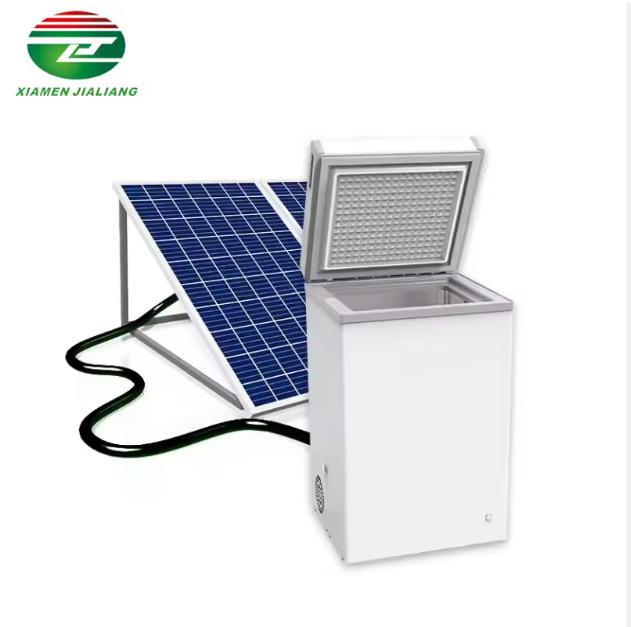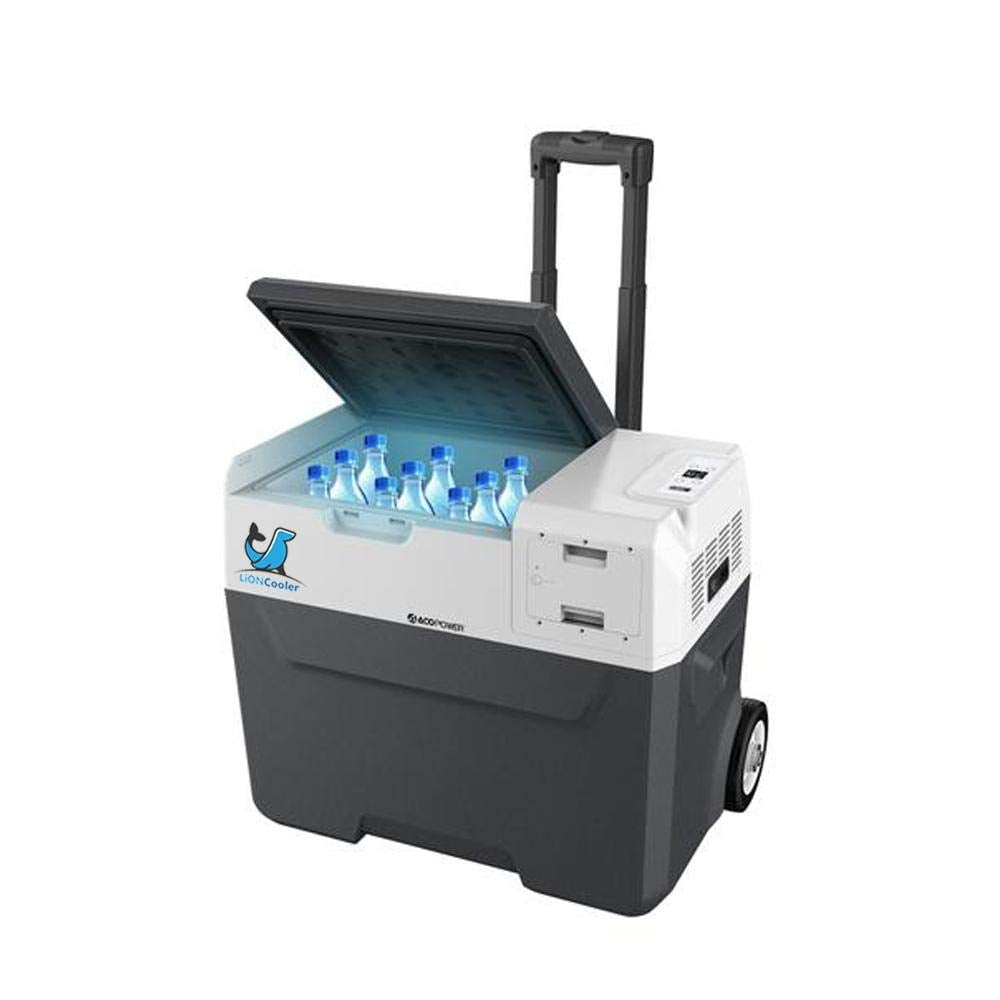Unlocking the Prospective: Just How Solar Refrigerator Can Transform Your Energy Consumption
The introduction of solar refrigerators presents an engaging opportunity to improve our technique to energy intake. By successfully utilizing eco-friendly solar power, these systems guarantee not only to decrease reliance on traditional energy sources but additionally to improve food preservation and protection, especially in underserved areas. As we discover the details of how solar refrigerators operate and their broad-ranging benefits, it comes to be apparent that their combination into daily life can cause significant developments in sustainability. What remains to be taken a look at are the sensible implications and options customers have to consider in this evolving landscape.
Exactly How Solar Refrigerators Work
Solar fridges run by utilizing solar power to power their cooling devices, efficiently making use of sustainable sources to keep reduced temperature levels. These systems normally include photovoltaic (PV) panels that convert sunshine right into power. This power is after that made use of to run the compressor, fan, and various other components essential for refrigeration.
The primary device in a solar refrigerator is the vapor-compression cycle, comparable to conventional refrigerators. In the evaporator, the cooling agent absorbs warm from the interior of the fridge, hence lowering its temperature level.
Solar refrigerators may likewise incorporate battery storage systems, permitting them to operate throughout non-sunny hours or in gloomy problems. This makes sure a continuous cooling impact, making them appropriate for various applications, particularly in remote areas doing not have accessibility to trustworthy electrical energy. By incorporating solar technology, these fridges add to energy performance and sustainability in food storage space and preservation.
Secret Advantages of Solar Refrigeration
The combination of solar technology right into refrigeration systems supplies numerous benefits that extend beyond simple energy financial savings. Among one of the most considerable benefits is the reduction of carbon impact. By harnessing sustainable solar power, these systems minimize dependence on fossil fuels, adding to a much more sustainable atmosphere. This change is especially vital in regions where electrical power supply is unstable or non-existent, permitting neighborhoods to preserve food conservation and safety.

Additionally, using solar power can result in energy independence, making it possible for individuals to create their very own power and decrease susceptability to varying power costs. On the whole, the fostering of solar refrigeration presents a diverse option that not just addresses power intake yet additionally promotes ecological sustainability and enhances food conservation capabilities in underserved communities.
Energy Cost Savings and Efficiency
With the climbing costs of power and boosting understanding of environmental problems, energy cost savings and performance have come to be essential considerations in refrigeration innovation (solar refrigerator). Solar refrigerators take advantage of renewable resource resources, substantially reducing reliance on standard power grids. By using solar energy, these systems lessen power intake, making them a financially viable alternative for both domestic and industrial applications
The style of solar fridges incorporates innovative insulation materials and energy-efficient compressors, which make certain optimal performance Recommended Reading while using minimal energy. Numerous solar fridge models also feature programmable setups and smart technology that enable users to monitor and handle power usage effectively. This smart layout causes reduced power bills and reduced functional costs over time.
Furthermore, solar fridges are equipped with batteries that store excess energy generated throughout bright days, enabling constant operation even during durations of low sunshine. This capacity boosts their performance, making sure that food and perishable items are regularly maintained at safe temperature levels.
Ecological Influence and Sustainability
Using renewable resource not just improves energy financial savings however also substantially adds to ecological sustainability. solar refrigerator. Solar refrigerators operate tidy, renewable resource sources, reducing reliance on nonrenewable fuel sources that contribute to greenhouse gas discharges. This change in energy usage minimizes climate modification influences and promotes a healthier planet

Furthermore, solar refrigerators are particularly valuable in remote locations where electrical energy access is limited or non-existent. By offering a feasible refrigeration service without the need for considerable facilities, they promote lasting development in underserved areas. This access not only boosts food security however also decreases food putridity, thereby reducing waste.
Selecting the Right Solar Fridge
Picking the ideal solar refrigerator requires mindful factor to consider of different elements to make certain optimal performance and efficiency. Analyze the energy needs based on your usage patterns. Compute the overall power level required to keep your products cool down, which helps in choosing an unit with an ideal solar panel dimension to meet these needs.

Another vital aspect is the sort of solar refrigerator-- compressor or absorption. Compressor models are usually more effective and much better matched for settings with changing temperatures, while absorption fridges may be more suitable for off-grid applications as a result of their simpleness.
Finally, make certain the unit has trustworthy solar parts, consisting of panels, batteries, and a cost controller, to guarantee long-term functionality. By carefully considering these elements, you can select a solar refrigerator that straightens with your energy goals and adds to lasting living.
Final Thought
In summary, solar fridges stand for a significant development in energy consumption, offering a lasting choice to standard refrigeration methods. By using solar power, these systems not only minimize dependence on nonrenewable fuel sources but additionally enhance food safety and lessen ecological effect. The integration of advanced innovations makes sure effectiveness and cost-effectiveness, advertising energy independence. As the fostering of solar refrigeration rises, a transformative shift in the direction of cleaner power practices and decreased a knockout post food waste is anticipated, contributing favorably to international sustainability initiatives.